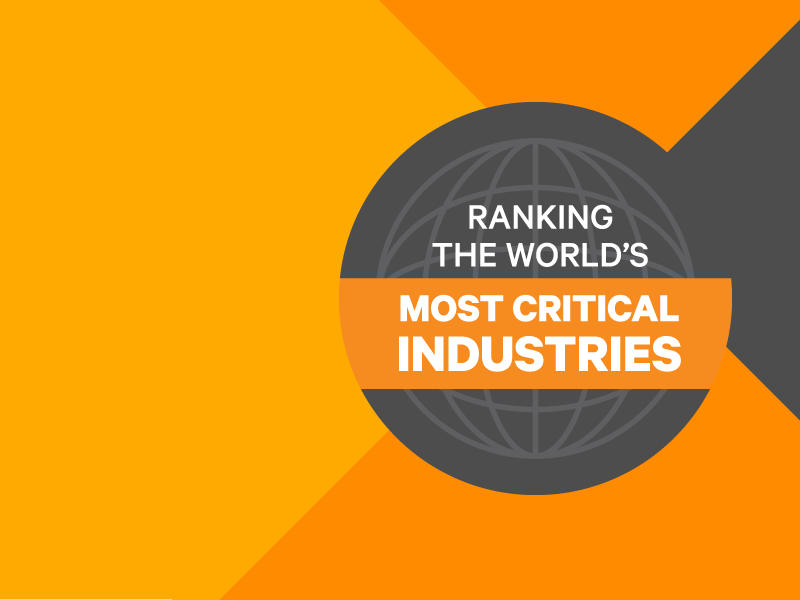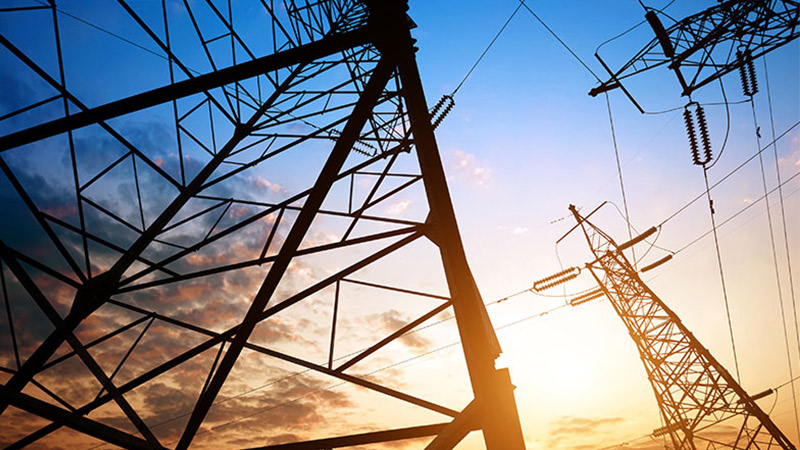Telecommunications ranks third on our list of the World’s Most Critical Industries
When we set out to identify the world’s most critical industries, we made every effort to approach the project with no preconceptions. A team of experts from around the world worked diligently to put together a comprehensive list of considerations to frame “most critical” and built a metric designed to objectively assign a criticality score to various industries. We approached it as any engineering-rooted organization would—focused relentlessly on the process and the data. And yet, if you had polled every person involved in the project before we started, it’s safe to say every last one of them would have shared one prediction for the ultimate outcome: Telecommunications would finish high on the list.
Let’s face it; telcos were delivering ultra-available networks almost a century before we started to understand what “five nines” meant. The telecommunications industry understood the tremendous responsibility they accepted when they introduced global, instantaneous communication. This was an innovation that became indispensible as soon as it became available and, as society grew to rely on telecommunications more and more, any small tolerance for network failure evaporated. For decades, telecom providers have lived in a world where network downtime simply is not an option. So, when telecommunications ranked third on our list of most critical industries, the only surprise was that it didn’t finish higher.
In looking at the various categories used to measure criticality, telecom scored highly for financial impact, societal order, immediacy of impact, and the effect of downtime on the company’s reputation. Don’t underestimate that last one. Telco providers – and we’re including mobile providers in this discussion – spend millions in marketing dollars to promote the reliability of their networks to enhance customer confidence and create competitive differentiation. Those “Can you hear me now?” ads worked – and later launched a career renaissance for the star (and considerable buzz in the telecom and advertising communities) – because ensuring connectivity anywhere, anytime is how telecom providers are measured.
Network reliability has been paramount in the industry from the start, but telecommunications has changed more since the onset of the 21st century than it did through the entirety of the 20th. Voice over IP led to voice and data convergence and eventually to a dramatic expansion of the telecommunications business. Today’s telcos deliver the internet and TV and are even crossing over into content development. A lot can happen in 20 years; do you even recognize these devices from 1997?
This evolution – the integrated, simultaneous transmission of voice, audio, video and data – required significant changes to network architecture. Yet despite the incredible pace of that change and predictable technological speed bumps, consumer tolerance for network failure only shrank. As providers delivered more and more capabilities to the palms of our hands, our patience for subpar performance wore increasingly thin.
The reality, however, is that reliability is more tenuous than ever before. Consider: For 100 years, the phones were the only things that worked during a power outage. But as VoIP and mobile become societal mainstays, reliable power becomes more critical. Today, a power outage can cripple our ability to communicate across our increasingly virtualized world.
Geographic boundaries matter less and less in this global economy. Technology enables a seemingly endless array of connections, and the Internet of Things will expand the number of places and touch points we can reach exponentially. A loss in connectivity disrupts our ability to operate vital applications, impacting economies, security services, and our way of life. And that, I think we all can agree, is the very definition of “most critical.”






